Are you looking to build your dream home? Buying land and constructing a house can be an exciting yet daunting process. But with the right financing options, it doesn’t have to be overwhelming. In this blog post, we’ll review the best ways to finance buying land and building a house so you can make your dreams come true!
1. Research land prices and locations

When researching land prices and locations, it’s important to consider a variety of factors such as the local real estate market, the cost of living in the area, and the quality of the schools and amenities. It’s also important to research the land itself, such as whether it is suitable for building a house, the zoning laws in the area, and any restrictions that may be in place.
It’s wise to consider the future potential of the area, such as future developments and how the land may appreciate in value over time. It’s also important to research the cost of purchasing the land, as well as any taxes or fees that may be associated with the purchase.
2. Consider obtaining pre-approved financing
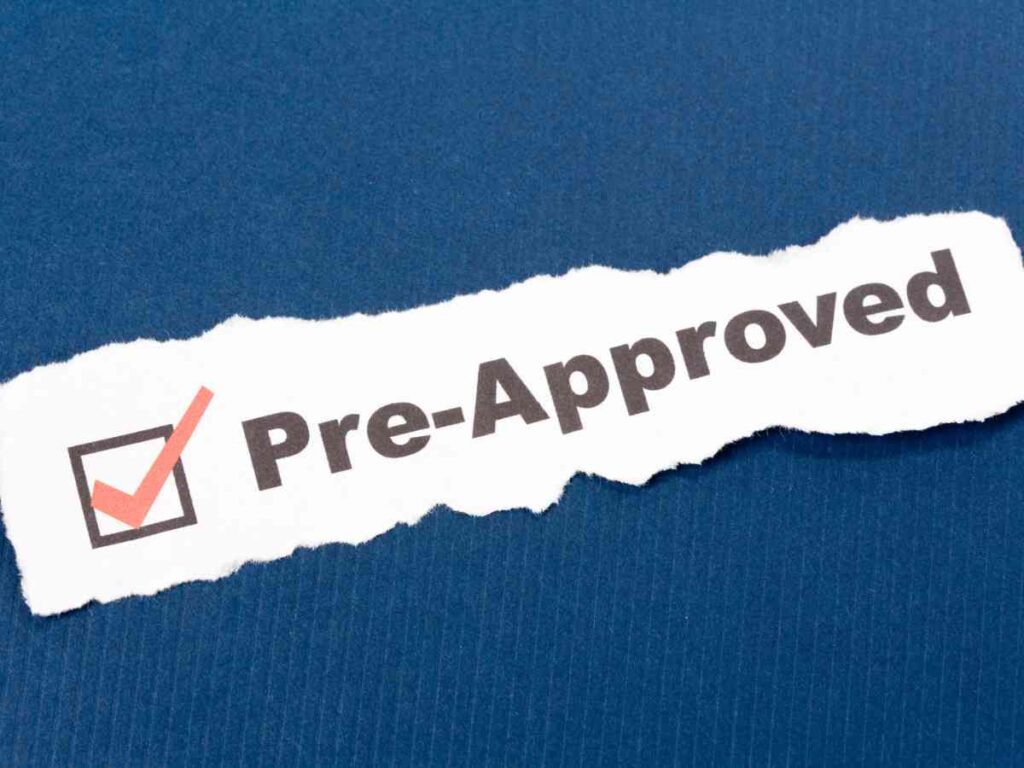
Getting a loan to finance land and construction is possible, but it’s important to do your research first. Before you start shopping for a loan, it’s a good idea to get pre-approved for financing. This will give you an idea of the loan terms and the amount you can borrow. You’ll also be able to shop around for the best rates and terms.
Looking at different lenders and comparing their rates, fees, and loan terms can help you find the loan that best meets your needs. Getting pre-approved for a loan can also help you secure a better rate and make your project more attractive to sellers.
3. Shop around for the best loan rate

When it comes to financing a land purchase and building a house, it’s important to shop around for the best loan rate. This will ensure that you get the most reasonable terms and the lowest interest rate possible on your loan. Banks, credit unions and online lenders all offer different loan solutions, so it’s important to compare the different options before making a decision.
Make sure to review the loan amount, interest rates, repayment terms, and any other fees associated with the loan. It’s also important to consider the quality of customer service offered by the lender, as this can make a difference when it comes to loan processing. By shopping around and comparing different loans, you can make sure you get the best loan rate available.
4. Estimate the total costs of building a house
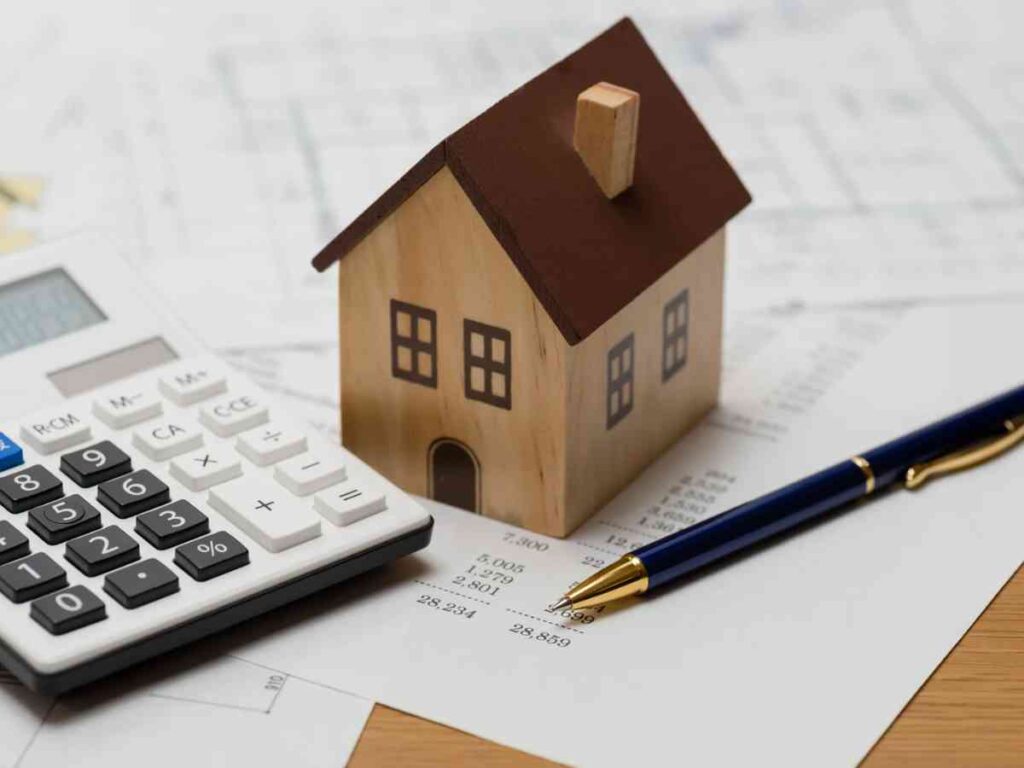
Before taking out a loan to finance the purchase of land and building a house, it is important to estimate the total cost of the project. The cost of land and construction will vary depending on the location and size of the house. It is important to consider the cost of utilities, permits, and any other necessary materials.
It is also important to factor in the cost of labor, which can be expensive depending on the complexity of the project. Additionally, it is important to research the average cost per square foot for construction in the area in order to make an accurate estimate. By calculating the total cost of the project, you can ensure that you are obtaining the best loan rate for the amount you will be borrowing.
5. Get a survey to confirm land boundaries and costs
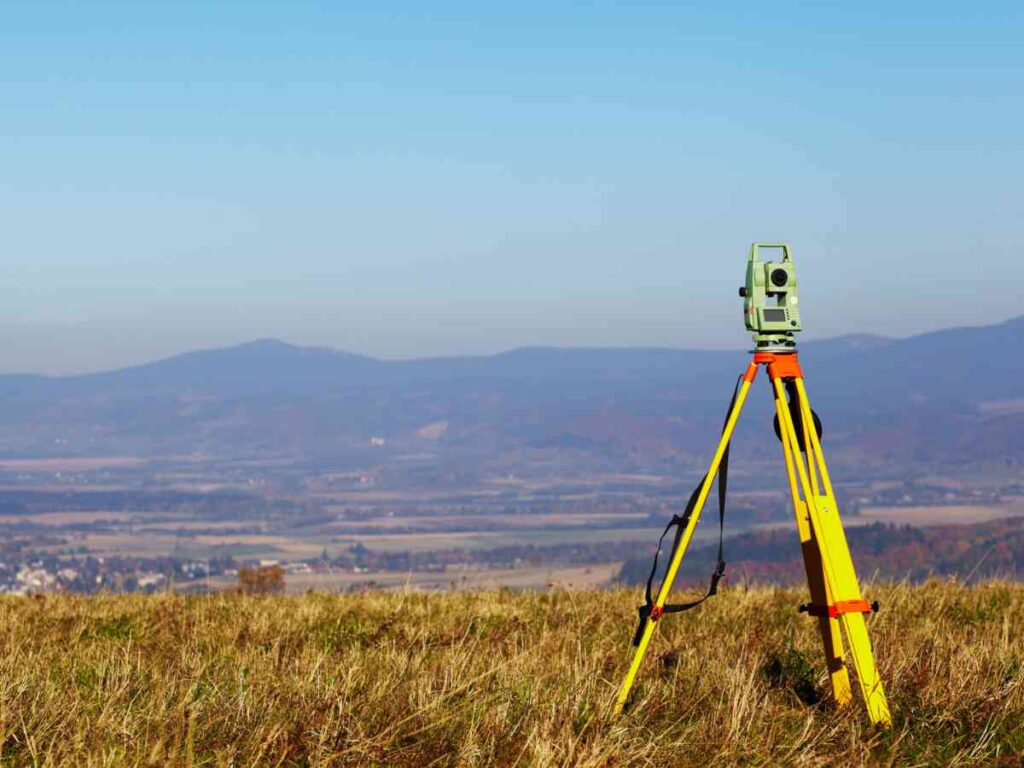
When you are buying land and building a house, it is important to get a professional survey to confirm the boundaries of the land. This will help to ensure that you are purchasing the correct amount of land and that you are aware of any potential obstacles on the property.
The survey may also provide an estimate of the cost of any necessary improvements or repairs that need to be made to the property, such as filling in sinkholes or leveling out the land. Additionally, the survey can help to identify any potential zoning issues that could prevent you from building the home of your dreams. Once you have the survey results in hand, you will be able to make an informed decision about your purchase.
6. Purchase title insurance for the land
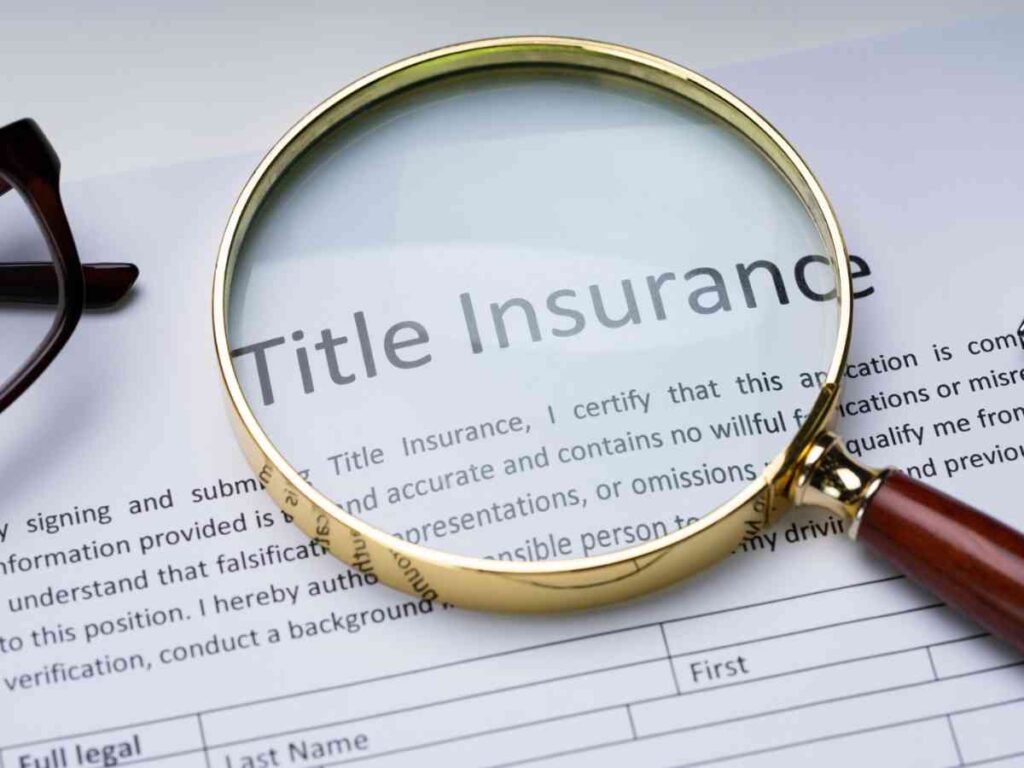
When you purchase land, it’s important to purchase title insurance in order to protect yourself from any potential title issues. Title insurance can help protect you from any unpaid taxes, liens, or other claims that may arise if you purchase land. It’s important to make sure you research the land and its history before purchasing in order to make sure you know what you’re getting into. Additionally, you should always consult a real estate attorney to make sure that your rights are protected. It’s also important to make sure you have the necessary documents and paperwork in order to effectively purchase title insurance.
This will help ensure that your purchase is protected and that you have the necessary legal documents in order to own the land.
7. Contact a reputable real estate attorney
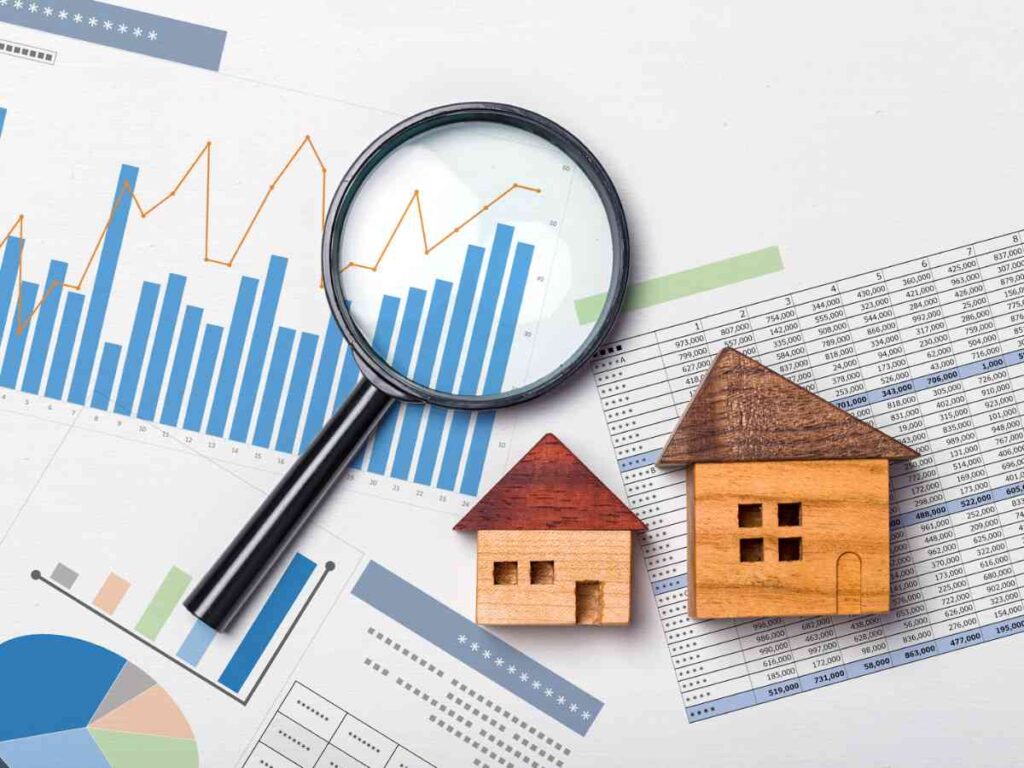
Once you have done your research and are ready to purchase land and begin building your house, the next step is to contact a reputable real estate attorney. A real estate attorney can help you ensure that all of the necessary paperwork is completed and filed correctly. They can also help provide you with legal advice and protection in case there are any issues that arise during the purchase and construction process.
A real estate attorney can also provide guidance on how to manage any disputes that may arise during the process. It is important to make sure that you are hiring a reputable real estate attorney who is experienced in land and construction transactions.
8. Factor in additional costs associated with building

When it comes to building a house, there are additional costs to consider beyond the cost of the land and the construction itself. For example, you will need to factor in the cost of permits, inspections, and any additional fees and taxes that may be associated with the building process.
You’ll also need to consider the cost of any materials and equipment you’ll need to purchase for the construction. Additionally, you’ll need to factor in the cost of labor for any subcontractors you hire to help with the construction. Lastly, you’ll want to factor in the cost of any additional services you may need to hire, such as a home inspector, lawyer, or surveyor. All of these costs should be taken into consideration when creating a budget for your home building project.
9. Research construction companies and bids

When it comes to building a house, it’s important to research the construction companies and bids available. You want to make sure you are getting the best deal for the money you are spending. It’s also important to make sure the construction company you are considering has a good reputation and is licensed.
Researching reviews from past customers is a great way to ensure the company you are working with is up to par. Additionally, make sure you get estimates from multiple companies to compare prices and quality of work. You want to make sure you are getting the best deal for the money you are spending.
10. Purchase homeowner’s and builder’s insurance

Once you have secured financing for the purchase of your land and construction of your home, it is important to protect your investment with both homeowner’s and builder’s insurance. Homeowner’s insurance covers the residence itself, as well as personal belongings, in the event of a loss.
Builder’s insurance covers any damage to the structure of the home during the building process. It is important to research different insurance companies and compare rates to make sure you are getting the best deal. Additionally, be sure to read the fine print of any policy to make sure you understand your coverage limits and any exclusions.
11. Save up to cover the down payment
When it comes to buying land and building a house, it’s important to save up for the down payment. This is the only way to ensure that you can cover the costs of the loan and the construction.
Depending on the type of loan you take out, you may need to put down anywhere from 5-20% of the total cost. It’s important to research the different types of loans available and determine which one is right for you. Saving up for the down payment will help to ensure that you have the necessary funds to cover the costs of the construction.
12. Consider building a smaller house
Building a smaller house has a number of financial benefits. It requires less materials, labor, and time to construct, which reduces the overall cost of the project. Additionally, the smaller the home, the less the property taxes and the smaller the utility bills. A smaller home also requires less maintenance and upkeep, saving you money over the long run. Before you commit to building a larger home, consider the financial implications of building a smaller house.
13. Research the costs of land and construction
Before you can start building your dream home, you need to research the costs associated with buying land and building a house. It’s important to have a clear understanding of the costs associated with the total cost of building a home. This includes the cost of the land itself, the cost of construction, and the cost of any additional materials needed to complete the project.
When researching land prices, it’s important to take into account the location you’re looking at. Factors such as accessibility, zoning, and transportation can all affect the cost of the land. Additionally, you should also consider the costs associated with obtaining any permits or approvals that may be required in order to build on the land.
It’s also important to research the construction costs associated with building a house. This includes the cost of materials, labor, and any additional costs associated with the project. It’s also important to research reputable construction companies who can provide you with estimates and bids for the project.
Before committing to a purchase, make sure you have a clear understanding of the total costs associated with buying land and building a house. Doing your research and understanding the associated costs can help you make an informed decision and ensure your project is completed on time and on budget.
14. Make sure you are able to obtain financing
Before you start the process of purchasing land and building a house, it is important to make sure that you are able to obtain financing. It is best to research your options and obtain pre-approved financing before you start looking for a piece of land. Banks offer special loans for those who want to purchase a plot and construct a home on it.
The FHA One-Time Close Loan is a good option, as it allows you to buy the land and cover construction costs in one loan. When shopping around for the best loan rate, be sure to factor in additional costs associated with building on the land, such as survey fees, title insurance, and homeowner’s and builder’s insurance. It is also important to save up enough for the down payment, as this will help to ensure that you are able to obtain financing.
15. Consider the cost of living in the area before purchasing
Before purchasing land and building a house, it is important to consider the cost of living in the area. This includes the cost of rent, utilities, transportation, and food. Additionally, research the area to see if there are any taxes or other fees that may be imposed on the property.
When budgeting for a new home, be sure to factor in the cost of living so that you can make an informed decision. Doing this can help you to avoid any surprises and ensure that you have a realistic budget for your new home.
16. Look for government grants or assistance
If you are looking for government grants or assistance, Grants.gov is the place to start. This free, official website provides access to a variety of federal funding opportunities. Here, you can search or apply for grants, and learn about government programs that provide financial help. If you are eligible, Assistance Listings can help you find the right program or grant for you. With Grants.gov, you can easily find the right government grant or assistance to fit your needs.
17. Shop around for a loan with the best interest rate
Shopping around for the best personal loan interest rate is a smart move for anyone looking to finance a large purchase. By taking the time to compare rates, terms and features of different lenders, you’re more likely to find a loan that meets your needs and can save you money in the long run. To get started, it’s a good idea to prequalify with multiple lenders so you can see which lenders are willing to offer you the best terms. From there, you can narrow down your options and find the loan that best fits your budget.
18. Research and compare home loan options
When researching home loan options, it is important to consider all the available options. To make the best decision, it is essential to compare different loan types, such as conventional, jumbo, government, fixed-rate and adjustable-rate mortgages. It is also important to compare mortgage rates when buying a home or refinancing a loan to ensure the best deal.
With free, customized mortgage rates from NerdWallet, homebuyers can save money by comparing different options. It is also important to consider any low- or no-down-payment loans when selecting the right mortgage. By taking the time to research and compare all the available options, potential homebuyers can find the loan that is right for them.
19. Talk to your bank about a potential loan
When seeking to secure a loan from a bank, it is important to approach the conversation in a friendly and professional manner. One should be mindful of the language they use when discussing the loan and its potential repayment terms, and should always present facts and figures to support their case.
It is also important to have a clear understanding of the lender’s underwriting process and what it entails in order to ensure that all requirements are met. It is important to note that banks are looking for borrowers who demonstrate a willingness to pay back the loan on time, and having a positive relationship with the lender is key in achieving that goal.
- Gulf Shores Getaway: 25 Exciting Things to Do and See in Alabama’s Hidden Coastal Gem! - May 31, 2023
- Lexington, KY: 25 Things to Do and See in the Horse Capital of the World! - May 29, 2023
- Atlantic City Adventures: 25 Things to Do and See in the Entertainment Capital of the Jersey Shore! - May 27, 2023

